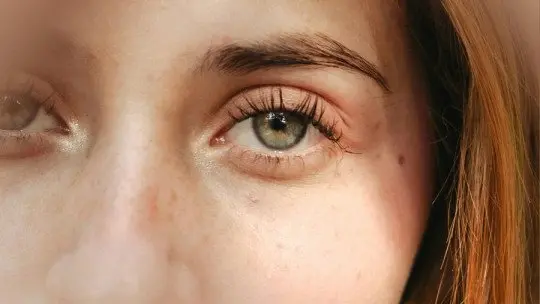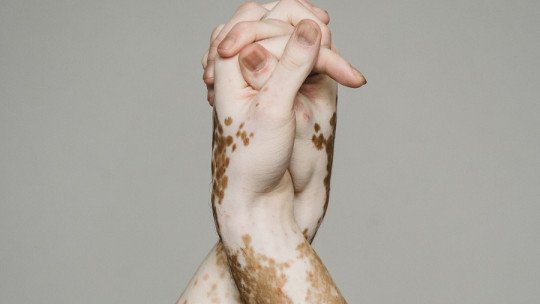
In contemporary society, fashion is not only a multi-billion dollar industry, but also a pervasive cultural phenomenon that exerts a powerful influence on our lives. From high fashion runways to thrift stores, fashion dictates aesthetic trends that shape our perception of what is desirable and acceptable in terms of clothing and style.
However, behind the apparent beauty and glamor of fashion lies a relentless pressure to follow the trends of the moment, an endless race to keep up with the changing standards of fashion. This obsession with always being in fashion leads us to spend large sums of money on new clothes each season, invest considerable time in following the latest trends on social networks and magazines, and constantly feel judged by appearance.
But, At what cost do we desperately pursue fashion? What effects does this relentless pursuit of being at the forefront have on our self-esteem, our interpersonal relationships, and our emotional and financial well-being? In this article, we will seek to answer these questions and give you keys to stop trying to always be in fashion.
Why do we always try to be in fashion?
The constant quest to be fashionable can be attributed to a series of complex factors that influence our behavior and decisions. Firstly, there is strong social pressure to follow the dominant trends in fashion. From a young age, we are bombarded with images of celebrities and models who set the standards for what is considered trendy. This influence is intensified by the omnipresence of social networks, where people constantly share their looks and lifestyles, generating a subtle but constant competition to stand out and be accepted.
Besides, The fashion industry and media play a crucial role in perpetuating the idea that happiness and success are intrinsically linked to owning and displaying the latest trends. Advertising campaigns and fashion shows persuade us that purchasing designer clothing or adopting specific styles will give us elevated social status and greater self-confidence.
Psychologically, the desire to be fashionable may also be rooted in the human need for belonging and acceptance. Clothing and style become symbols of identity and affiliation to certain social groups or urban tribes. Therefore, conformity to the dress norms of a certain group can be perceived as a form of integration and personal validation.
In summary, The pressure to be fashionable is the result of a combination of external and internal influences that shape our perceptions and behaviors. Overcoming this pressure requires a critical analysis of our motivations and a reevaluation of what we truly value in terms of style and self-expression.
The negative effects of always trying to be in fashion
While following fashion trends may seem harmless or even fun at first, in the long term it can have significant detrimental effects on various aspects of our lives.
1. Dependent self-esteem
First of all, the obsession with being fashionable can negatively affect our self-esteem and self-perception. When we rely on external trends to define our worth, We run the risk of feeling inadequate or dissatisfied with ourselves if we cannot keep up with the latest fashions. This can lead to feelings of anxiety, low self-esteem and even depression, as our self-image is closely linked to our physical appearance and sense of style.
3. Economic problems
In addition, maintaining a wardrobe that is always up-to-date and in the latest fashion can have significant financial consequences. The fashion industry is designed to encourage constant consumption, promoting the idea that we need to buy new clothes regularly to stay “up to par.” This can lead to an endless cycle of overspending on clothing and accessories, negatively affecting our personal finances and contributing to the problem of rampant consumerism.
3. Superficial social relationships
Obsession with fashion can also have repercussions on our interpersonal relationships. When we prioritize outward appearance over authenticity and genuine connection with others, we risk distancing ourselves from who we really are. This can make it difficult to build deep and meaningful relationships since our concern with maintaining a superficial image can prevent us from being truly vulnerable and authentic with others.
4. Physical and mental health
In addition to the emotional and social effects, the pressure to always be fashionable can also affect our physical and mental health. The constant stress of keeping up with trends can lead to exhaustion, lack of sleep, and increased anxiety levels. Additionally, the obsessive pursuit of perfection in physical appearance can lead to eating disorders, body image disorders, and other mental health problems.
How to stop trying to always be in fashion
Once we have understood the problems surrounding trends and fashions and the obsession with always trying to keep up with them, it is important to also understand that everything is susceptible to change. To do this, we offer you some keys and strategies to stop trying to always be in fashion.
1. Discover your own style
Exploring and discovering your own style is essential to free yourself from the pressure of always being fashionable. Take time to reflect on what clothes and styles make you feel most authentic and confident. Experiment with different combinations of clothing, colors and accessories until you find what really represents you. Don’t be afraid to break with conventions and follow your intuition.
Remember that style is a personal expression and uniqueness of who you are, not simply following the trends of the moment. By embracing your unique style, you will feel more confident and less inclined to blindly follow fads.
2. Cultivate your own confidence
Self-confidence is key to freeing yourself from the pressure of following fashion trends. Focus on developing strong self-esteem based on your inner qualities and who you are as a person. Recognize your strengths and accept your imperfections as part of what makes you unique. Practice self-care and self-compassion, and avoid constantly comparing yourself to others. Celebrate your achievements and learn to recognize your own value regardless of your appearance or outside opinions. The more you trust yourself, the less you will need to seek external validation through fashion, and the freer you will be to express yourself authentically.
3. Reduce your exposure to fashion influence
Consciously limit your exposure to media and social networks that excessively promote fashion trends. Be selective about the accounts you follow and the content you consume, opting for sources that celebrate diversity and authenticity in style.
Consider turning off notifications from trendy apps and dedicating that time to activities that promote your mental and emotional well-being.
Additionally, cultivate interests and hobbies that go beyond fashion, which will help you broaden your perspective and focus on more meaningful aspects of your life. By reducing your exposure to fashion influence, you will be able to make more conscious decisions aligned with your own sense of style and authenticity.
4. Practice material detachment
Reflect on your spending habits and question whether you really need to constantly buy new clothes to feel good about yourself. Practice material detachment and learn to value experiences and relationships over the possession of material objects. Consider taking a more minimalist approach to your wardrobe, opting for quality, versatile pieces rather than accumulating an excess of clothes you barely wear.
Before making a purchase, take a moment to reflect on whether you really need that item or if you are being influenced by the pressure to follow trends. By reducing your attachment to material possessions, you will find greater satisfaction and fulfillment in the things that really matter in life.
5. Prioritize your comfort and functionality
Instead of obsessing about following the latest trends, focus your wardrobe choices on comfort and functionality. Opt for clothing that suits your lifestyle and daily activities, rather than following fads that may not be practical or comfortable in the long term. Look for high-quality materials and timeless designs that last over time and provide you with comfort in various situations. Remember that true style is not just about how you look, but also how you feel. By prioritizing comfort and functionality in your wardrobe, you will feel more confident and authentic in your own skin regardless of current trends.
Conclusions
In conclusion, freeing yourself from the pressure of always being fashionable involves cultivating a sense of style, strengthening internal confidence, reducing the external influence of fashion, practicing material detachment, and prioritizing comfort and functionality in your wardrobe. By embracing authenticity and individuality in the way we dress, we can find greater satisfaction and well-being in our daily lives.








